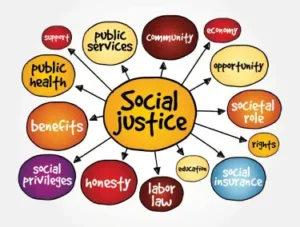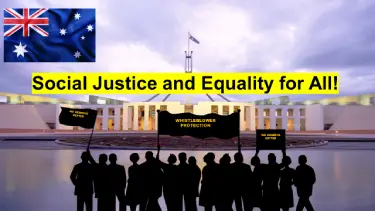Description
Explore how constructively criticizing Labor’s neoliberal shift can guide Australia towards a compassionate political system using its monetary sovereignty.
Constructively Criticizing Labor Without a LNP Resurgence
Introduction

Australia’s political discourse has been increasingly dominated by debates over the direction of Federal Labor. Once seen as the champion of social justice and equality, Labor’s recent shift towards neoliberal policies has sparked concern among its supporters.
Many fear that criticizing Labor too harshly could pave the way for the Liberal-National Coalition (LNP) to regain power. However, strategic, constructive criticism can encourage Labor to return to its progressive roots without jeopardizing its position against the LNP.
This article explores how to effectively criticize Labor’s current policies while keeping a united front against neoliberalism, ensuring that Australia moves towards a compassionate and ethical political system using its monetary sovereignty.
The Importance of Constructive Criticism
Labor’s Historical Context and Achievements

Labor has historically been the party of the working class, advocating for social justice, universal healthcare, and fair economic policies.
Over the years, Labor has achieved significant milestones, such as the introduction of Medicare, advances in workers’ rights, and substantial investments in education and public infrastructure.
However, recent years have seen a shift in Labor’s policy stance, with increasing alignment towards neoliberal economic principles.
Recent Shift Towards Neoliberal Policies
Labor’s support for privatization, deregulation, and fossil fuel projects has raised alarms among progressives. These policies often prioritize corporate profits over public welfare, leading to increased inequality and reduced access to essential services.
For instance, Labor’s backing of new coal and gas projects contradicts global efforts to combat climate change and reduces Australia’s ability to meet its carbon reduction targets.
Public Sentiment and Dissatisfaction
There is growing public dissatisfaction with Labor’s current direction. Many supporters feel that the party has strayed from its core values, compromising on key issues like environmental protection, social welfare, and Indigenous rights.
This discontent is reflected in declining party membership and increasing support for minor parties and independents who champion progressive causes.
Addressing Concerns About LNP Resurgence
Political Fragmentation Risks

One of the main concerns among Labor supporters is that harsh criticism could split the progressive vote, weakening Labor’s electoral chances, and potentially allowing the LNP to regain government.
This fear is not unfounded; history shows that divided progressive movements often struggle to compete against a unified conservative bloc.
When progressive votes are fragmented across multiple parties or candidates, it dilutes their electoral strength, making it easier for a single conservative party like the LNP to win.
Constructive vs. Destructive Criticism
The key to avoiding political fragmentation is to differentiate between constructive and destructive criticism. Constructive criticism aims to improve policies by highlighting specific issues and suggesting practical alternatives.
Destructive criticism, on the other hand, tends to be negative and divisive, focusing on attacking the party rather than its policies.
Balancing Act: Criticizing While Maintaining Support
To effectively balance criticism and support, it is essential to focus on policy issues rather than personal attacks. Constructive criticism should be framed in a way that acknowledges Labor’s past achievements while emphasizing the need for policy realignment.
This approach helps support a critical yet supportive stance, encouraging positive change without alienating the party’s base.
Naming Problematic Labor Policies and Offering Alternatives
Support for Fossil Fuels
Issue: Continued Support for Fossil Fuel Projects
Labor’s ongoing support for new coal and gas projects undermines global efforts to combat climate change. Despite the urgent need to reduce carbon emissions, Labor has approved several fossil fuel initiatives, raising concerns about the party’s commitment to environmental sustainability.
Critique: Environmental and Climate Concerns
This stance is problematic because it contradicts the scientific consensus on the need to phase out fossil fuels to mitigate climate change. It also ignores the potential for renewable energy to create sustainable jobs and economic growth.
Alternative: Transition to Renewable Energy
Labor should commit to transitioning to renewable energy sources, such as solar and wind power. By investing in green infrastructure and technology, Australia can reduce its carbon footprint and lead the way in sustainable development.
Benefit: Sustainable Development and Job Creation
A shift to renewable energy would help Australia meet its climate targets, create new jobs in the green economy, and reduce dependence on fossil fuels. This approach aligns with global trends towards sustainability and positions Australia as a leader in climate action.
Neoliberal Economic Policies
Issue: Privatization and Deregulation
Labor’s adoption of neoliberal economic policies, including privatization and deregulation, has led to increased inequality and reduced access to essential services. These policies often help corporations at the expense of public welfare.
Critique: Increased Inequality and Reduced Public Service Access
Privatization of public services, such as healthcare and education, tends to increase costs and reduce accessibility, particularly for low-income and vulnerable populations. Deregulation can lead to exploitative labor practices and environmental degradation.
Alternative: Reinvest in Public Services
Labor should focus on reinvesting in public services to ensure they still are publicly owned and accessible to all. Strengthening public healthcare, education, and social services can promote equity and improve quality of life for all Australians.
Benefit: Improved Social Equity and Access to Essential Services
By prioritizing public investment, Labor can reduce inequality and ensure that all citizens have access to high-quality services. This approach fosters a more inclusive and fair society, addressing the root causes of social and economic disparities.
Inadequate Social Welfare Programs
Issue: Insufficient Support Relative to Cost of Living
Labor’s social welfare policies have not kept pace with the rising cost of living, leaving many Australians struggling to meet basic needs. Inadequate unemployment benefits and housing support worsen poverty and social exclusion.
Critique: Impact on Vulnerable Populations
Insufficient social welfare programs disproportionately affect low-income families, single parents, and elderly individuals. Without adequate support, these groups face increased financial stress and reduced quality of life.
Alternative: Increase Funding and Accessibility
Labor should increase funding for social welfare programs to ensure benefits are adequate and accessible to all who need them. Expanding support for housing, healthcare, and education can help lift vulnerable populations out of poverty.
Benefit: Reduction in Poverty and Improved Quality of Life
Enhanced social welfare programs can provide a safety net for those in need, reducing poverty and improving overall well-being. This approach promotes social justice and economic stability, helping society.
Immigration and Refugee Policies
Issue: Hardline Stance and Offshore Detention
Labor has supported a hardline stance on immigration and refugee policies, including the continuation of offshore detention centres. These policies have been widely criticized for their inhumanity and violation of human rights.
Critique: Human Rights Violations
Offshore detention centres are associated with poor living conditions, mental health issues, and prolonged detention periods. These practices violate international human rights standards and damage Australia’s global reputation.
Alternative: Humane Immigration Policies and Support Systems
Labor should implement fair and humane immigration policies, providing adequate support for refugees and asylum seekers. Closing offshore detention centres and offering pathways to citizenship can uphold human rights and promote integration.
Benefit: Upholding Human Rights and Better Integration
Humane immigration policies can improve Australia’s international standing and ensure that refugees are treated with dignity and respect. Supporting integration helps build a more diverse and inclusive society.
Indigenous Rights and Recognition
Issue: Slow Progress on Indigenous Issues
Labor’s efforts towards Indigenous rights and recognition have been criticized as insufficient and slow-moving. Despite numerous recommendations and calls for action, meaningful progress has been limited.
Critique: Perpetuation of Inequality and Injustice
Lack of progress on Indigenous issues perpetuates historical injustices and maintains significant social and economic disparities. Indigenous Australians continue to face lower life expectancy, higher incarceration rates, and limited access to education and healthcare.
Alternative: Accelerate Recognition Efforts and Program Funding
Labor should accelerate efforts for constitutional recognition and implement the recommendations from the Uluru Statement from the Heart. Increasing funding for Indigenous programs and services can address disparities and promote reconciliation.
Benefit: Promotion of Reconciliation and Equal Opportunities
Comprehensive action on Indigenous issues can foster reconciliation and ensure equal opportunities for Indigenous Australians. This approach promotes justice, equity, and respect for Australia’s First Nations peoples.
Summary
Constructively criticizing Labor’s policies is essential to ensure the party aligns with its core values of social justice and equity. By addressing specific policy issues and offering practical alternatives, we can encourage Labor to adopt more compassionate and ethical policies.
This approach not only improves Labor’s stance but also helps to keep a united front against neoliberalism, preventing the LNP from regaining power.
Question for Readers
How can we balance holding Labor accountable while ensuring a united front against neoliberal policies?
Call to Action
Join the movement for social justice! Advocate for policies that prioritize the well-being of all citizens. Share this article with your contacts and on social media to spread awareness.

